Sky Q vs Virgin V6: which is better?
Sky's 4K box has been out a while, but can Virgin's V6 counter?
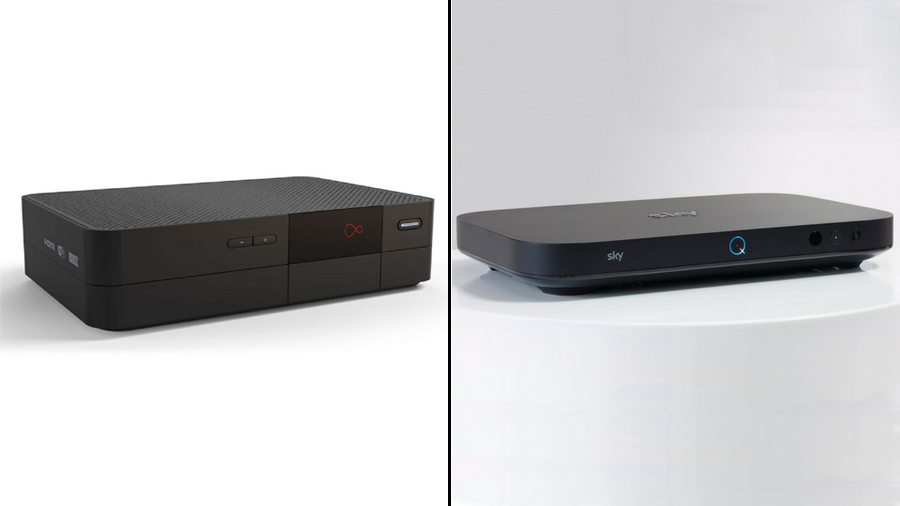
You want 4K. You want HDR. You want multi-room streaming and apps. You want … a TV TellyTablet? Virgin Media's newly announced Virgin TV V6 set-top box may come with a few curious features, but there's no doubting that's it's a welcome arrival.
It's the only HDR-capable box around – and it has Netflix 4K – but can it challenge the Sky Q box? As the cable operator goes up against the satellite broadcaster, it's game on for multi-room TV and much, much more.

Sky Q vs Virgin V6: Specs
When it comes to recording capabilities, Sky Q pips it. Though both boxes can record six programmes while you watch a seventh (though Sky Q will only do so in January 2017 when a firmware update lands – it currently maxes-out at four channels), the V6 has only 1TB of storage (around 500 hours of SD, 100 hours of HD or 25 hours 4K recordings) compared to Sky Q's 2TB.
However, unlike the V6, Sky Q also allows for a 'slave' box called the Sky Q Mini, which has no hard disk, but can stream from the master box. It also sells a 1TB version of the master box that can record three channels while a fourth is watched, but that box can't handle 4K content.
The key difference here is that V6 boxes can be daisy-chained – potentially creating endless, and colossal, recording capabilities – while Sky Q as a concept has boundaries. However, the latter will be modular enough for most homes.
The V6 can also stream to a Virgin-made Android-based TV TellyTablet, which has a 14-inch screen and promises HD resolution. It also has four built-in speakers, 32GB memory, a microSD card slot, two USB ports, a built-in stand, and 7-8 hours of battery life. The Virgin TV Anywhere app comes preloaded, but it can also access apps from Google Play; it sounds like a regular Android tablet (which can also be used to stream from the box if you download the TV Anywhere app), so we're not convinced why it needs to exist.
Meanwhile Sky Q app offers the same tablet and phone streaming functionality, but without a Sky-branded tablet, relying instead on third-party devices.
Sign up for breaking news, reviews, opinion, top tech deals, and more.
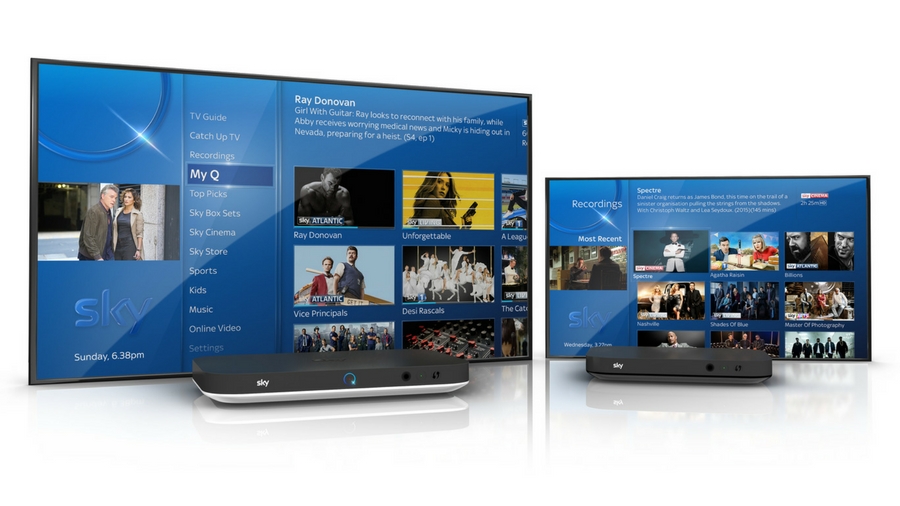
Sky Q vs Virgin V6: Price and Availability
Although the basic Sky TV subscription costs £20 each month for the original bundle, Sky Q Multiscreen costs £32 each month, while the initial installation of the 2TB box costs a whopping £259 for Multiscreen (that's a 2TB box and a Sky Mini box), or £199 for just the main Sky Q box. Additional Sky Mini boxes cost £99 each. Time to get haggling! It's all available now.
The V6 box can be pre-ordered now, and will be installed during in January 2017, both to new customers as part of various deals, and to existing customers of the Mix TV package (or higher) as a one-off upfront cost of £99.95. That's on top of the standard £20 monthly charge for TV channels plus a £14.99 activation fee. Existing customers with the Full House or VIP bundle can get a box for £49.95. The TV TellyTablet is available now for an upfront fee of £299.
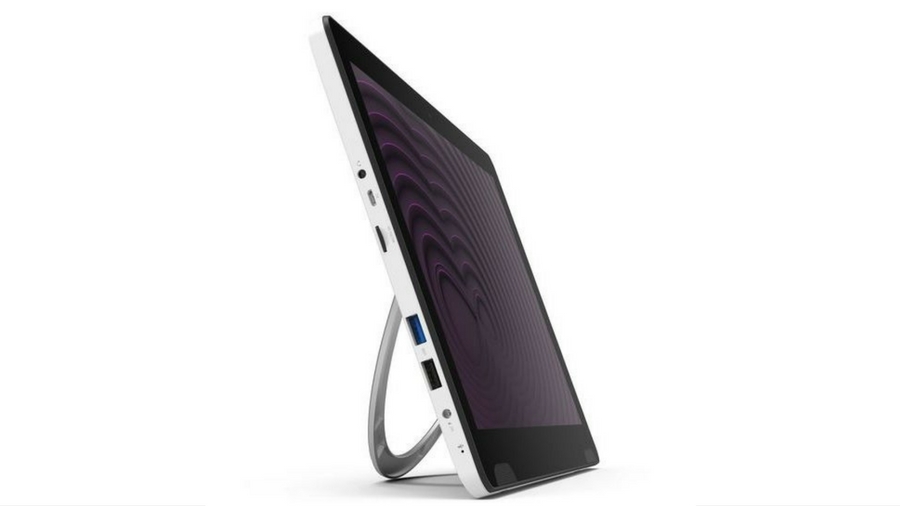
Sky Q vs Virgin V6: App
Virgin has updated its TV Anywhere app to play nicely with multi-room functions. Although it's touted as letting customers watch live TV, on demand box sets and selected box recordings on a phone or tablet anywhere at home over Wi-Fi, the key phrase is 'selected' – we just don't know what that means yet. However, some recordings will be available to download to your phone to watch away from the house; an absolute boon for commuters and travellers.
Meanwhile, Sky Q's app does all this already, though it's aimed far more specifically at its own pay TV base; it allows many of its own programmes to be downloaded to devices, and watched on-the-go.
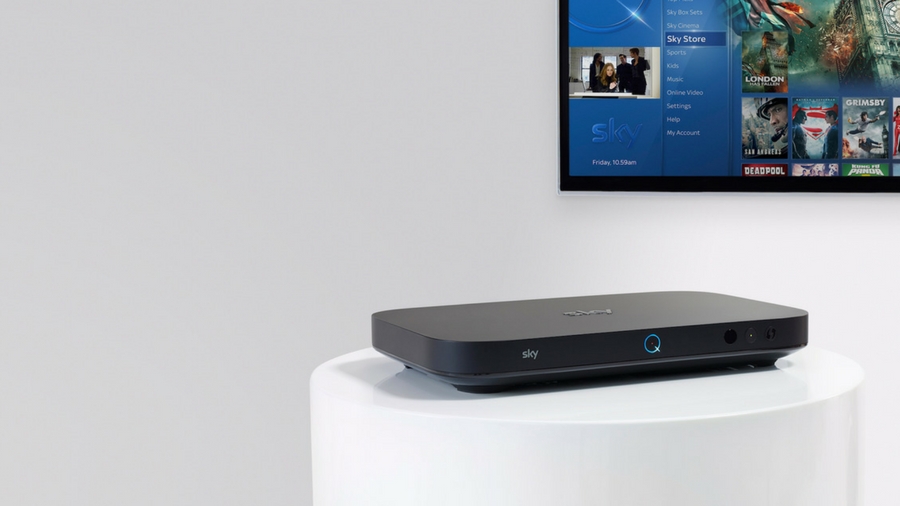
Sky Q vs Virgin V6: Multi-room streaming
Part of the 'everything everywhere' concept pushed by both of these set-top boxes is the ability to watch TV in any room via Powerline adapters or Ethernet.
Both providers are hoping that you lap-up their marketing and invest in more than one box because each box allows you to watch a programme in one room, pause it, and continue watching it in another room (so-called 'fluid viewing'). But there is one big difference. With Sky Q, you can add as many 'slave' Mini boxes and tablets as you want (and stream simultaneously to two of them). For the V6, daisy-chaining more boxes – including the existing Virgin TV TiVo box – massively increases your recording capabilities.
However, Sky Q does have a few exclusive tricks up its sleeve. Not only do its boxes allow music streaming from phones over Bluetooth and AirPlay, but the Mini boxes also act as WiFi extenders. Slick stuff indeed.
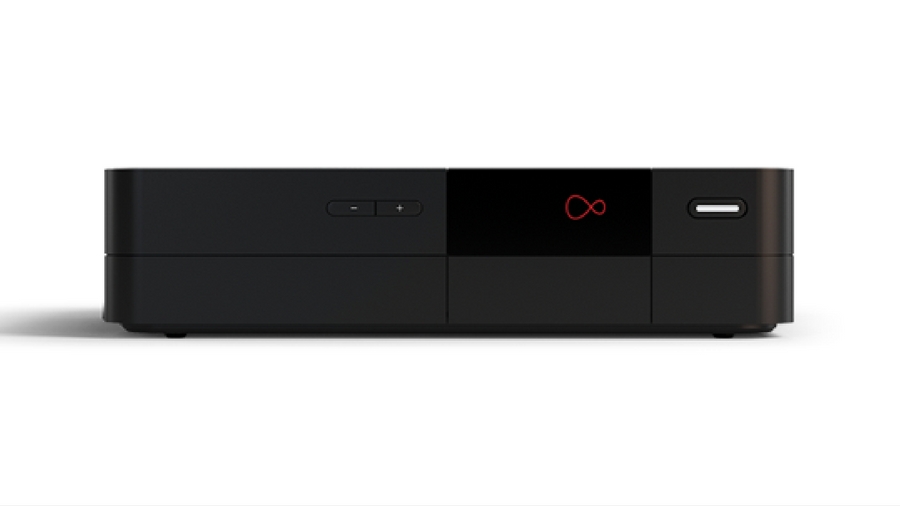
Sky Q vs Virgin V6: Channels and Content
While both Sky Q and V6 are 4K-ready, only Virgin Media's box can handle HDR. Does that leave Sky's effort looking behind the times? It does, though for now it's a moot point; there are no TV channels broadcasting in HDR, and even the V6 will require a software update to be downloaded sometime in the future before it can handle the new technology. It's also perfectly possible that HDR abilities will also come to Sky Q via firmware (as it did recently to Sony's PS4 console), perhaps even earlier.
Although the V6 will have Netflix 4K and YouTube 4K available from launch, so far there has been zero information on the possibility of live 4K TV channels. That's a huge concern for anyone with a 4K TV.
However, Sky Q has no Netflix whatsoever, which is perhaps an even greater drawback, but it does already boast live 4K TV broadcasts including 124 Premier League football matches in the current 2016-2017 season, the complete 2017 season of F1 and about 70 films.
The V6 also sees the arrival of the Virgin Media Store. Cue boxset and film downloads, just like the Sky Store.
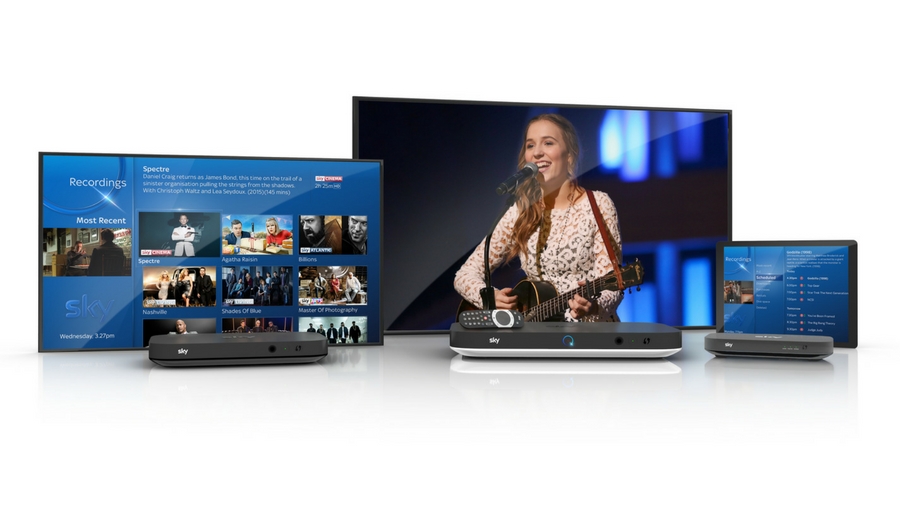
Conclusion
Only time will tell if Virgin's TV TellyTablet is its killer app or a meaningless accessory, but the announcement of the V6 is brilliant news for anyone with a Virgin Media TiVo box for one main reason; speed. The user interface on the current TiVo box is slow, convoluted and becoming more and more frustrating.
So even if you don't want 4K or HDR future proofing, the V6 – which promises '10x the power' (though we'll believe that when we see it) – is a tempting option. That it's compatible with the existing TiVo box adds to its charm, since it means not losing access to existing recordings if you go for a multi-room daisy-chain set-up. That kind of set-up will be hard to beat on flexibility.
The V6's announcement is also great news for Sky customers because it appears to have given the satellite broadcaster some much-needed competition. Though its 2TB hard disk is a minor point for Sky Q, its live 4K broadcasts could be the clincher for some. Plus, a new firmware update due in January promises a few enticing new features such as Sports Start Over (football, F1 and golf will revert to the beginning if you tune-in late), Voice Search, and simultaneous recording choices that bring it into parity with the V6.
Whichever one you go for, the arrival of the V6 to challenge Sky Q means that the battle of the boxes is now a 4K fight.
- Check out our full Sky Q review.

Jamie is a freelance tech, travel and space journalist based in the UK. He’s been writing regularly for Techradar since it was launched in 2008 and also writes regularly for Forbes, The Telegraph, the South China Morning Post, Sky & Telescope and the Sky At Night magazine as well as other Future titles T3, Digital Camera World, All About Space and Space.com. He also edits two of his own websites, TravGear.com and WhenIsTheNextEclipse.com that reflect his obsession with travel gear and solar eclipse travel. He is the author of A Stargazing Program For Beginners (Springer, 2015),